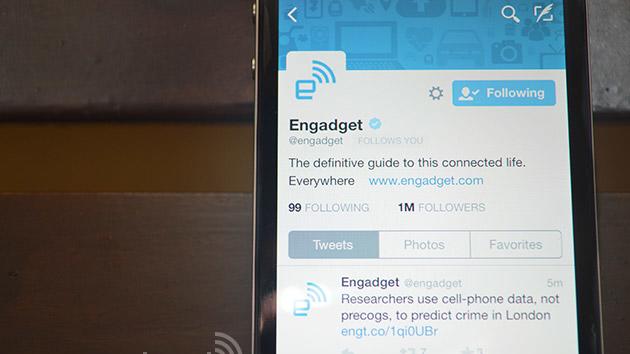GovernmentSurveillance
Latest

The year of Yahoo's undoing
It's not often that we're able to quantify the crappiness of a particular year, but Yahoo's 2016 was so tragic that it ended with a hefty, widely publicized price tag: $1 billion. That's the size of the discount that Verizon requested on its purchase of Yahoo, just three months after the $4.83 billion acquisition went public. That deal (and the discount) is still in the works, and it's expected to close early next year, but Verizon clearly feels it has the upper hand in negotiations. And, after Yahoo's year of hacking disclosures, government spying and security issues, it's easy to see why.

Senate passes USA Freedom Act (update: signed by Obama)
For the first time since the 9/11 attacks, both houses of Congress have agreed to limit the government's domestic surveillance powers. Earlier today, the Senate voted 67 to 32 and passed the USA Freedom Act, echoing the House's vote in May. The bill is designed to counter the Patriot Act's controversial section 215 -- the bit that enabled the NSA to collect phone records en masse, request "roving wiretaps" and seize business files -- just one day after the provision officially expired. Update: According to several press reports, tonight President Obama signed it into law.

Twitter sues US government over Transparency Report restrictions
Twitter has been publishing what bits of info it's allowed to concerning national security requests for some time now, but the social media feed wants the ability to publish the whole thing. Today, the outfit filed a lawsuit aiming to get approval to post its entire transparency report. In a blog post, VP of Legal Ben Lee says that the company is asking a California District Court "to declare these restrictions on our ability to speak about government surveillance as unconstitutional under the First Amendment." As is stands, Twitter and others can't communicate the exact number of national security letters (NSLs) or FISA court orders, even if there aren't any. If you'll recall, it tried to beef up transparency outside of court earlier this year, but Twitter couldn't come to terms with the US Department of Justice and FBI on as much as a redacted version of the full report.

Powerful spyware apps let the government control everything on your phone
There's been a lot written over the past year about government spying, but not so much about how governments spy. It's easy to forget that there's an industry thriving underneath that controversy. In 2011 WikiLeaks founder Julian Assange released a series of documents it called the Spy Files -- a comprehensive database of surveillance products and companies who market their services specifically to government agencies. Companies like Hacking Team specialize in advanced spyware, gifting their customers with the ability to exercise total control over a target's device while remaining completely invisible. A group of researchers recently tracked down and reverse engineered Hacking Team's RCS (Remote Control System) tool to see just what these corporate spyware firms are capable of. The answer, is quite a lot.



